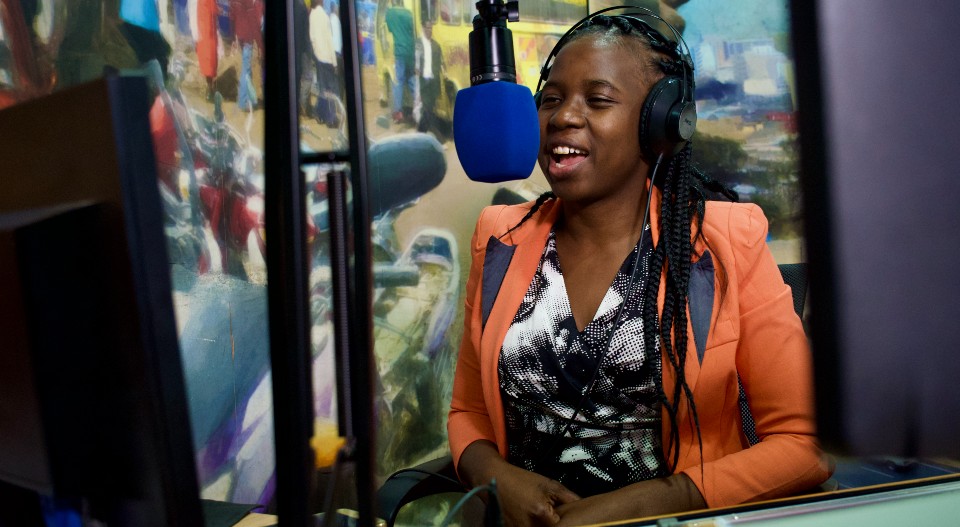From where I stand: “You see pictures of women in their perfect houses, perfect kitchen, perfect hair but the life of a woman in a slum is so different.”
Date:
Claret Adhiambo is a presenter at Ghetto Radio in Nairobi, Kenya. She uses her platform to tell stories of women and girls in Kenya. Ghetto Radio is popular among Kenya’s youth, reaching out to millions of listers all over the city of Nairobi every day.

![]() As a gender champion and a journalist, I help bring stories of women and girls to the limelight and I act as a bridge for those stories to be heard.
As a gender champion and a journalist, I help bring stories of women and girls to the limelight and I act as a bridge for those stories to be heard.
The news stories I tell on Ghetto Radio are about women. Stories of gender-based violence; women unable to access healthcare; maternal healthcare; young girls unable to access education; young girls unable to access sanitary towels. By telling these stories, I create awareness on gender inequality and, sometimes, women and girls are able to access the services and help they need.
I feel like women in media have to work ten times harder, shout harder, for their voices to be heard. Even to amplify these stories of women, we work so hard for them to be aired compared to stories being told by our male colleagues.
On the billboards you see pictures of women in their perfect houses, perfect kitchen, perfect hair but the life of a woman in a slum is so different. The woman in a slum lives for today and earns less than a dollar a day. Sometimes she doesn’t even have someone to look after her children when she goes for work. Life in the ghetto is hard, and that’s where the radio is widely listened to.
There is also a lot of gender bias on social media. For example, I did a story about teen moms to create awareness on increased teenage pregnancy during COVID 19. To amplify the story further, I shared on my social media pages. My goodness, the kind of comments the story received! And it was mostly men - so sexist, and so ignorant. The point of posting was for society to show support and help avoid sexual exploitation of young girls, but instead social media hurt the girls further.
People hide behind keyboards to bring women and girls down - they don’t want to see the story behind the woman that needs to be told - so they try to silence them. That’s why I will continue to be a gender champion, because there are so many untold stories of women and girls that needs to be told.
Supported by the Government of Finland, UN Women has been working with African Woman and Child Feature Service (AWCFS) to publicly promote women’s leadership and participation in decision making during the COVID-19 period. Claret Adhiambo is one of the 44 trained gender champions who has used her position to tell the stories of women and girls. The project’s advocacy work on TV and radio is estimated to have reached up to 8 million viewers and listeners during 2020.